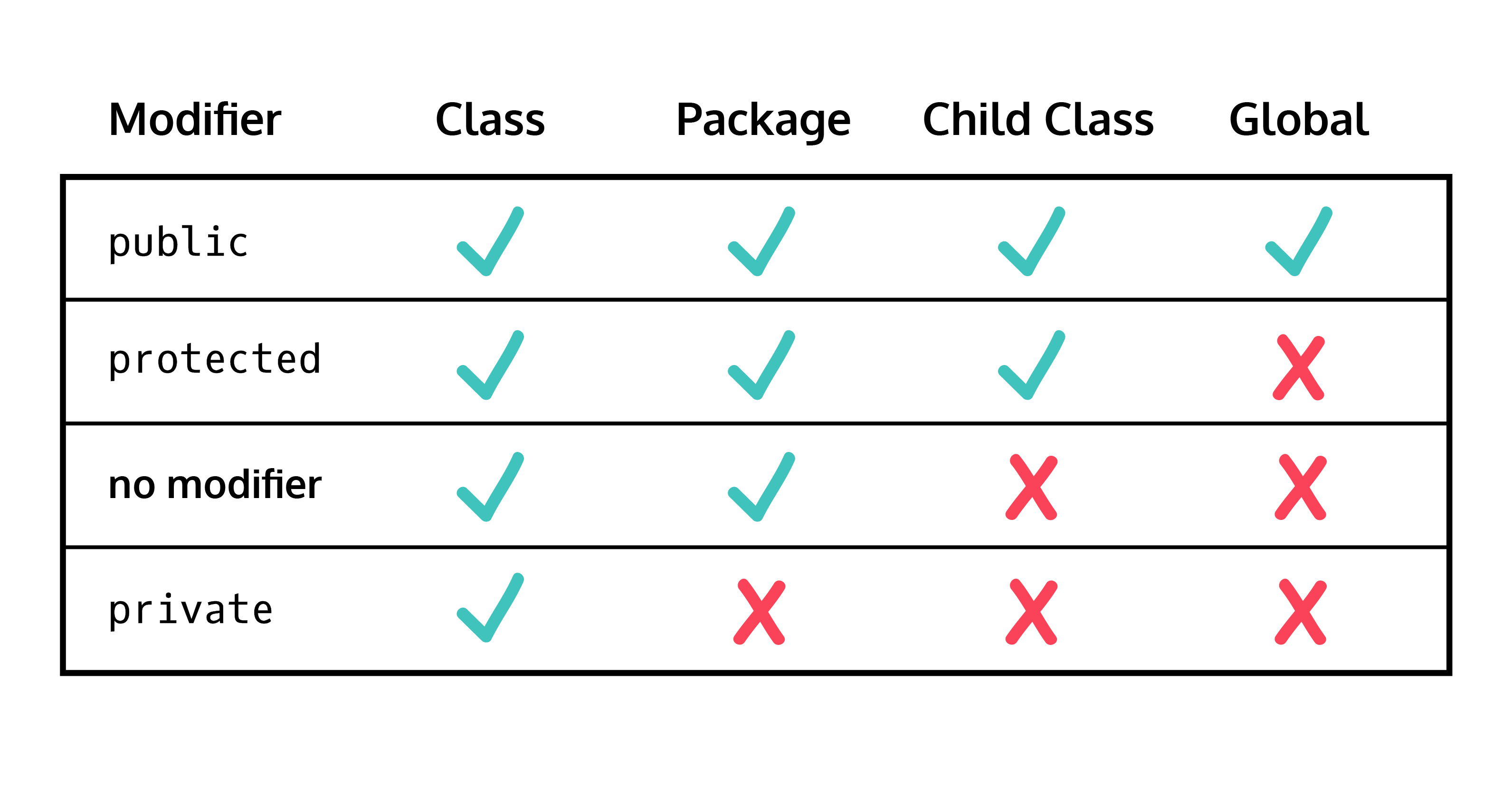Object-Oriented Programming in Java
Inheritance
Inheritance is the concept of allowing a class to inherit the methods and properties of another class.
Superclasses refer to the class that another class inherits from. Subclasses refer to the class that inherits qualities from another class.
// Parent class:class Animal {String sound;Animal(String snd) {this.sound = snd;}}// Child class:class Dog extends Animal {// super() method can act like the parent constructor inside the child class constructor.Dog() {super("woof");}// alternatively, we can override the constructor completely by defining a new constructor.Dog() {this.sound = "woof";}}
Accessors and Mutators
Accessors and mutators (or getters and setters) are public methods that are used to access and change private instance variables.
private String name;// Accessor method:public String getName() {return name;}// Mutator method:public void setName(String newName) {this.name = newName;}
Objects
An object is a specific instance of a class that uses attributes and behaviors to represent a real-world entity.
class Whale {// Instance variables define the state of an object:String whaleSpecies;int whaleWeight;// Constructor:public Whale(String name, int weight) {// Assign values to instance variables:whaleSpecies = name;whaleWeight = weight;}// Non-static method:public String whaleCall() {System.out.println("EEEEOOOUUUUUAAAAAA");}public static void main(String[] args){// Create a Whale object:Whale whale1 = new Whale("narwhal", 2100);whale1.whaleCall(); // Prints: EEEEOOOUUUUUAAAAAA}}
Access Modifiers
There are four types of access modifiers, each with different scopes:
publicprotected- no modifier
private
The scope ranges from public classes, which are accessible from anywhere in the program, to private classes, which are only accessible in the class itself.

Polymorphism
Polymorphism allows a subclass to share the information and behavior of its superclass while also incorporating its own functionality.
// Parent class:class Monster {String monsterNoise;public Monster(String monsterNoise) {this.monsterNoise = monsterNoise;}public void makeNoise() {System.out.println(monsterNoise);}}// Child class:class Vampire extends Monster {public Vampire() {super("I want to steal your blood!");}// Override the parent class method:@Overridepublic void makeNoise() {System.out.println("Muahahaha " + monsterNoise);}public static void main(String[] args) {Monster dracula = new Vampire();dracula.makeNoise();// Prints: Muahahaha I want to steal your blood!}}
Variable Scope
In Java, variables have three different levels of scope:
- class scope: instance variables, which are accessible throughout the class they are declared in
- method scope: local variables, which are only accessible in the method in which they are declared or passed into as an argument
- block scope: loop variables, which are only accessible in the loop or conditional in which they are declared
public class Car {public String color; // This instance variable is accessible throughout the classpublic void setColor(String newColor) {// newColor is a local variable that is only accessible in this method}public static void main(String[] args) {public Car toyota = new Car(); // toyota is also a local variable, and is only accessible in this methodfor (char c : toyota.color) {// c is a loop variable that is only accessible in this blockchar temp = c; // temp is also a loop variable that is only accessible in this block}}}
